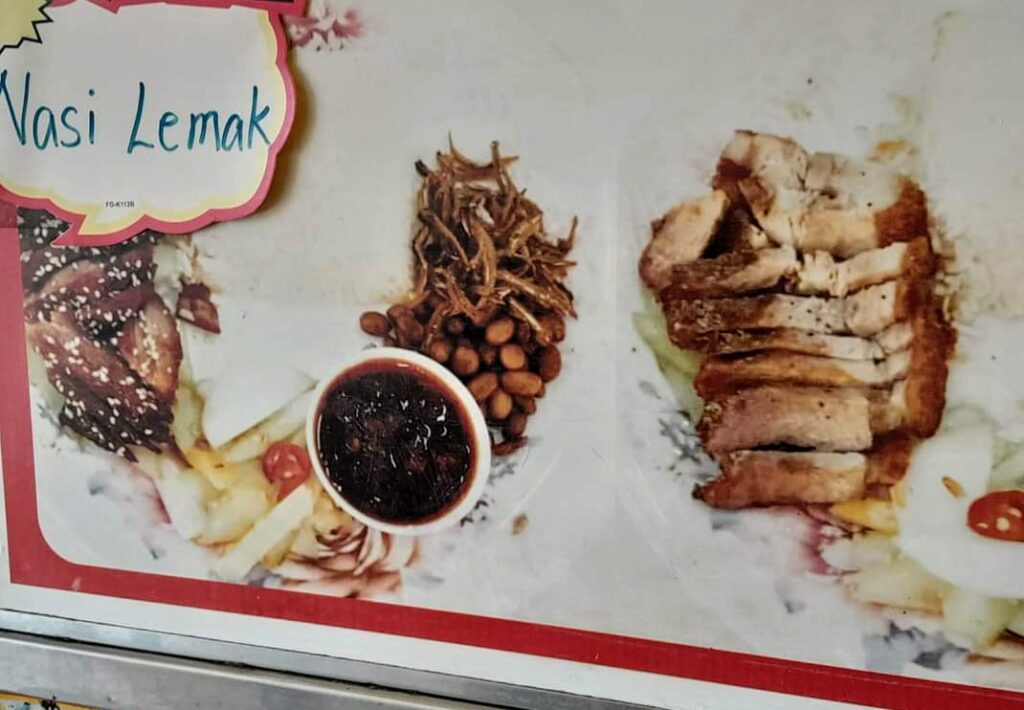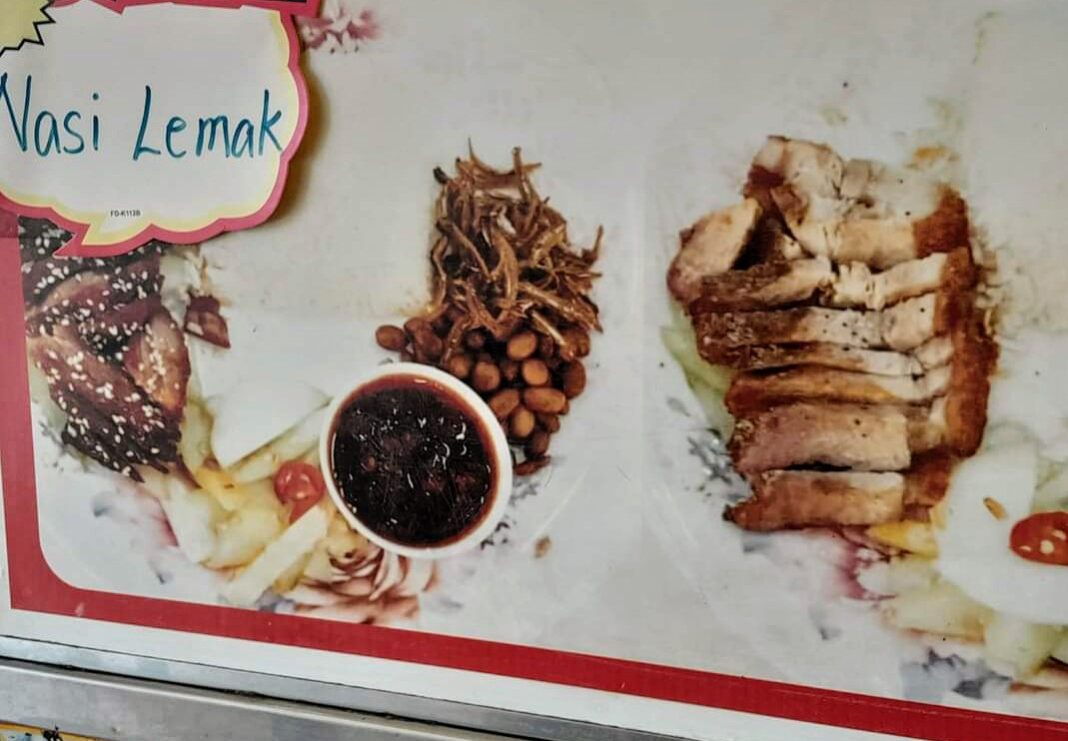
Everyone is familiar with nasi lemak and would readily identify it as a Malay cousins and therefore halal, or simply pork free.

CC Pung – Sabah Justice of Peace and Tokoh Wartawan Sabah and Labuan.
I came a cross this at a non halal shop at Inanam, in the Kota Kinabalu suburbs.
The display cabinet has char siew, roasted pork, roasted duck and roasted chicken.
The photo suggests that this nasi lemak is served with things pork and, of course, the mandatory sambal, cucumber, peanuts and rice cooked with coconut milk.
This innocent looking advertisement looks, to me, like the restaurant thumbing its nose at some people in Malaysia who claimed they invented nasi lemak and that it is necessarily halal.
These people belong to a segment of Malaysians who like to portray themselves as holier than others as though they are divinely appointed.
Recently, they kicked up a debate about the much loved herbal pork soup called bak kut teh.
They insisted that because bak kut teh is traditionally pork, they objected to ‘kut teh’ being used to name a dish called ‘chi kut teh’, which is chicken cooked with herbs used in bak kut teh.
Because Muslims could eat chicken, these jealous alleged that ”chi kut teh’ could cause confusion among Muslims.
How would they react to nasi lemak with pork since they have claimed ‘ownership’ of it?
Nasi lemak is eaten by .ost if not all Malaysians.
From the very basic, wrapped in banana leaf and sold at about RM1 to elaborate offerings with curry fish (particularly sting ray) fried Spanish Mackrell or pork curry sold by non Muslim vendors, nasi lemak has evolved. Its Malaysian more than just Malay.
It amuses me to hear claims that Muslims could be confused by food description. Really?
I’m reminded of some recent order that only official halal certificate will do in the authentication of a halal restaurant.
Because od stringent and tedious rules governing the certificate, non Muslim earing places usually put up ‘we serve no pork’ or such signs to assure Muslim customers.
This ia no longer allowed.
Many people understood ‘halal’ to mean only restriction on anything pig.
But I have learnt that to get a halal certificate, the authorities must verify, for example, the sourcing of food materials, cooking utensils, the people involved in the food preparation, the serving crew, etc etc.
Some have described the requirements ‘as strict as’ the Jewish people’s demand for Kosher compliance.
What say you? You thunk this Inanam restaurant will escape the jealots’ attention?
Editor: The views expressed here are those of the writer and do not necessarily represent the views of the talantang.com





